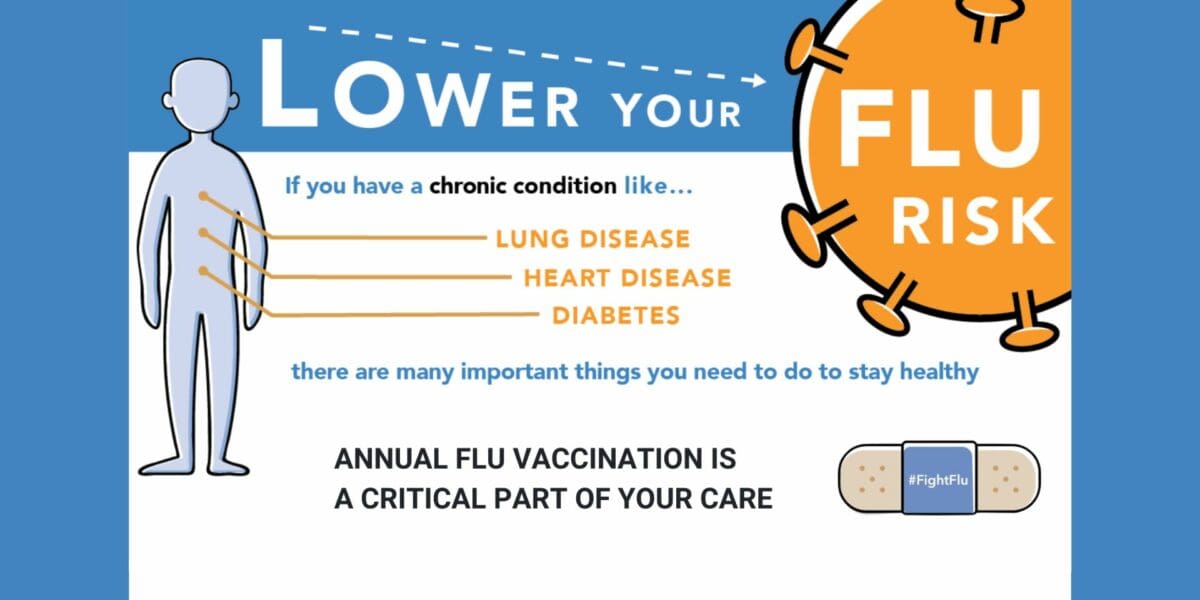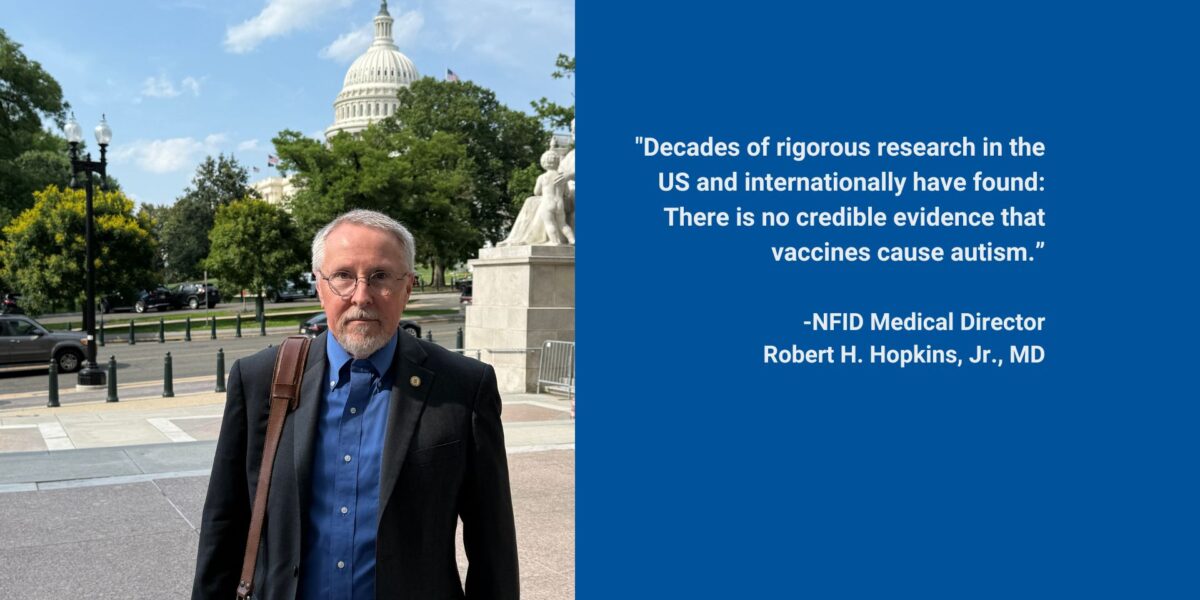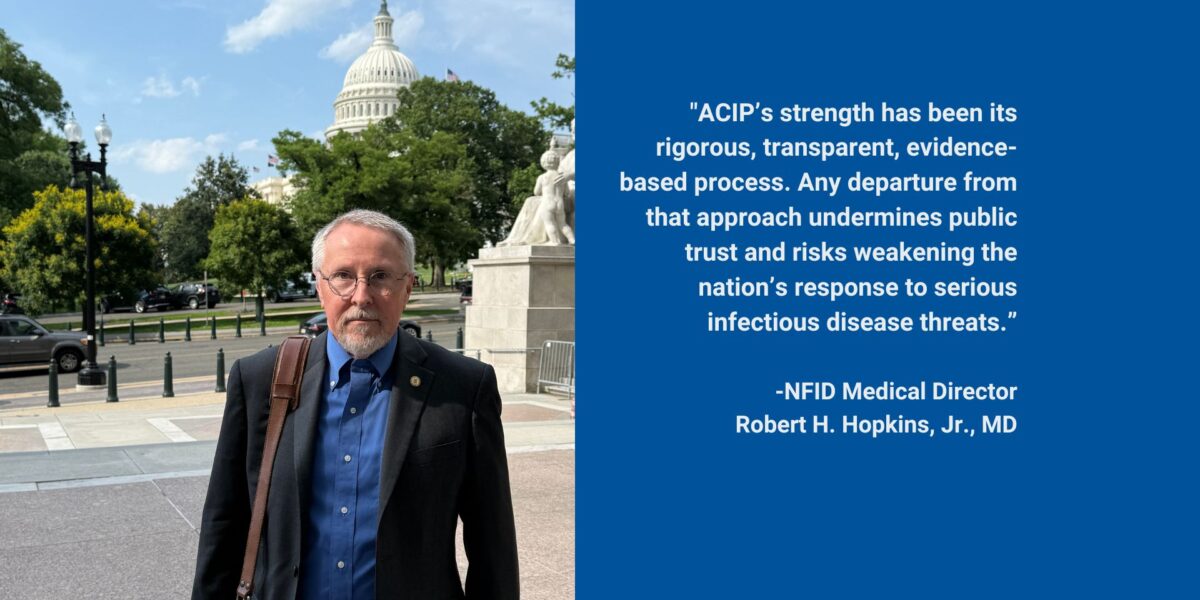Recent Press Releases
National Health Organizations: Flu Shots Critical for Individuals with Diabetes, Heart, and Lung Disease
During National Influenza Vaccination Week, experts encourage everyone age 6 months and older to get vaccinated to reduce risk of severe illness and hospitalization
NFID Calls for Scientific Integrity and Transparency in CDC Communications
Decades of rigorous research in the US and internationally have found no credible evidence that vaccines cause autism.
Statement on September 2025 Advisory Committee on Immunization Practices Meeting
NFID strongly supports the use of evidence-based guidance to inform public health policy and will work to preserve equitable access, choice, and public and private insurance coverage to life-saving immunizations to protect the health of people across the US …




